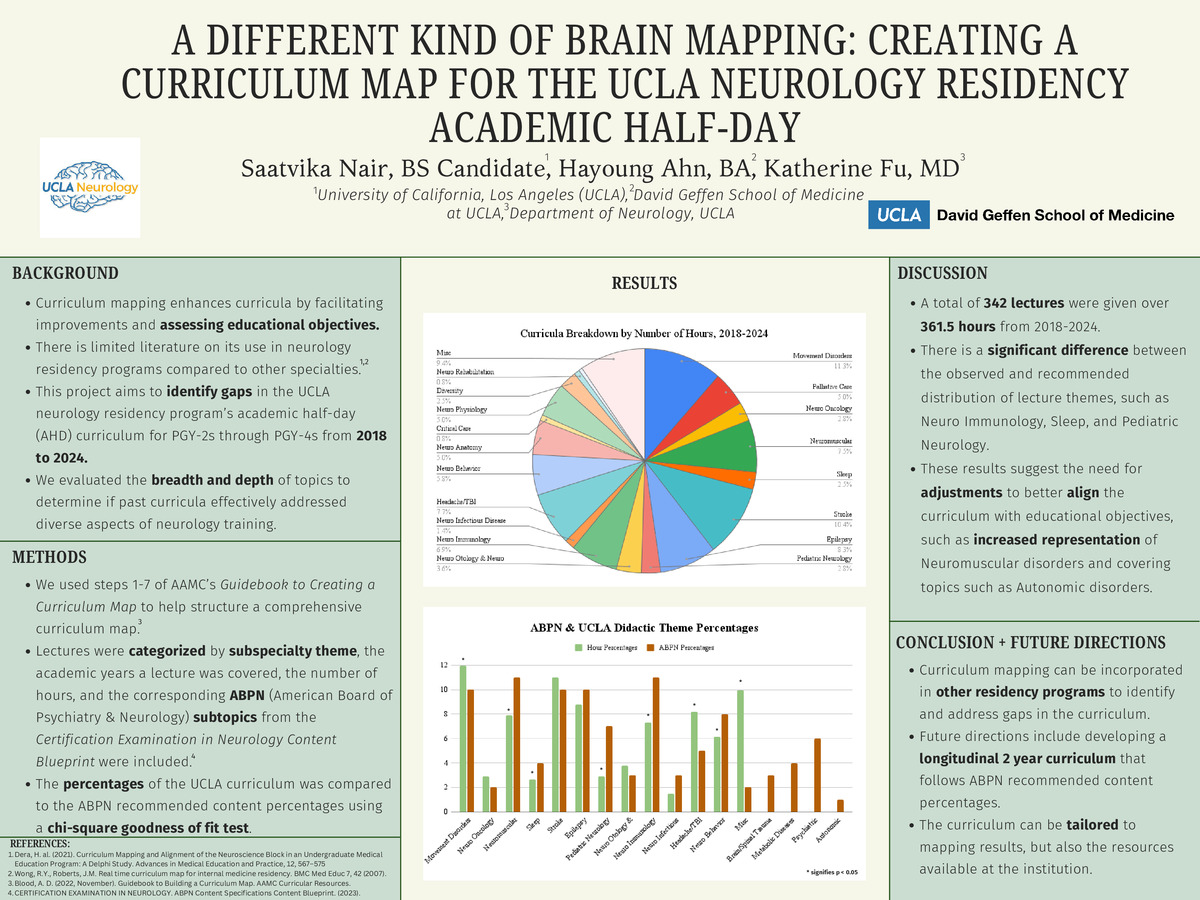
-
Author
Katherine Fu -
Poster Title
A Different Kind of Brain Mapping: Creating a Curriculum Map for the UCLA Neurology Residency Program Academic Half-Day
-
Author(s)
Saatvika Nair, BS Candidate, Hayoung Ahn, BA, Katherine Fu, MD
-
Contact Author Email
smnair22@g.ucla.edu
-
Poster Abstract
Curriculum mapping is a valuable tool that can facilitate iterative improvement to curricula & determine whether relevant educational objectives are being met. While more prevalent in graduate medical education programs for specialities such as internal medicine, there is limited literature on its use in neurology residency programs.
This project aims to identify & address the potential gaps in the current UCLA neurology residency program academic half-day (AHD) by creating a curriculum map based on data from 2018-2023. By examining the breadth & depth of topics covered, we aimed to gauge if the curricula of the prior years adequately addressed the diverse aspects of neurology training.
We adhered to steps 1-7 of the AAMC curriculum map guidebook, which informed the creation of a curriculum map encompassing topics of the didactic sessions held from 2018-2023. These topics were then cross-referenced with the American Board of Neurology and Psychiatry (ABPN) certification examination content blueprint.
Of the 320 lectures given, movement disorders (13.1%) & neuromuscular disorders (10.1%) were the highest subspecialties represented during the 5-year time frame. Conversely, critical care (1.3%) & pediatric neurology (3.4%) were underemphasized. These results demonstrate areas of strength and improvement for the neurology residency program academic half-day curriculum. In addition, ABPN neurologic topics such as autonomic nervous system disorders, psychiatric disorders, and metabolic diseases, are minimally represented and thus also represent gaps in the curriculum that may benefit from future improvement. Other topics such as neuroethics and women’s neurology, which are recognized by the American Academy of Neurology in their suggested curricula, are similarly underrepresented, and may be worthwhile to incorporate in the future.
-
Keywords
medical education, curriculum, clinical education
-
Poster PDF

